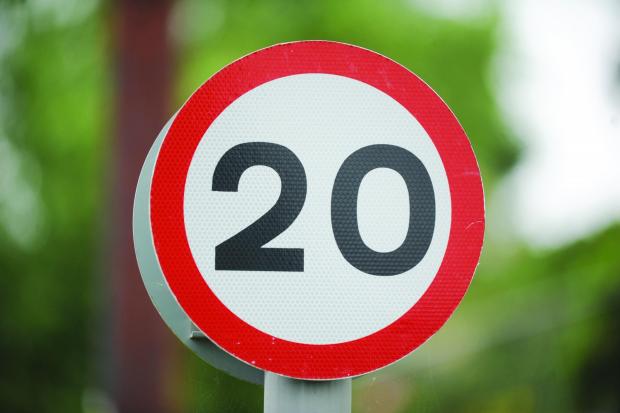
Leading doctors are calling on the government to ease pressure on the NHS by introducing an Emergency National Urban Limit. Driving less fast prevents collisions and reduces the numbers and severity of road victims the NHS has to care for at this critical time. For this reason, the doctors advocate a reduction in the national speed limit from 30mph to 20mph. Such a change is an affordable, practical and cost-effective step to reduce demand for hospital beds.
Nearly 3,000 road traffic collision-related admissions to NHS hospitals in England every month
20’s Plenty for Us, the national campaign for 20mph limits with 460 local community campaigns, is supporting the doctors’ calls for the government to act now.
In a letter to The Times, 109 doctors wrote: “..each month there are nearly 3,000 road traffic collision-related admissions to NHS hospitals in England alone. Lowering and enforcing speed limits would reduce the frequency and severity of road traffic collisions.”
67% decrease in major and fatal injuries
And population health expert Prof. Sunil Bhopal wrote in the Medical Journal: “First, we suggest an immediate reduction in motor vehicle speed limits. In England alone there are around 35,000 non-fatal admissions to hospital every year related to road traffic accidents. In Canada, lowering the speed limit from 40km/h to 30km/h was associated with a 28% decrease in pedestrian-motor vehicle collisions and a 67% decrease in major and fatal injuries. We therefore suggest that the government urgently explore an emergency reduction of all national speed limits to 50mph, and to 20mph in urban areas.”
Rod King MBE, Founder and Campaign Director of 20’s Plenty for Us said: “It is in the Government’s power and interest to change all 30mph limits to 20mph by making appropriate public announcements, without any need to change road signs. The precedent already exists to change national speed limits in an emergency. The Government changed national speed limits in the 1974 fuel crisis to save petrol and it must do this in the 2020 Covid-19 crisis to save lives. This move will match the mood all of us to do everything possible for our NHS resources and staff.”
The ‘lower the baseline’ is described in more detail here
Road safety experts and ministers from 130 countries have resolved to tackle road danger, air pollution and the climate emergency by adopting 20mph limits wherever vulnerable road users and vehicles mix. However, as the nationwide network of 20mph zones continues to grow, it’s vital that effective road engineering and robust police enforcement go hand in hand to ensure it delivers its full potential. Unfortunately, evidence suggests that current enforcement of 20mph speed limits is statistically insignificant.
The ethical choice
The ETA was established in 1990 as an ethical provider of green, reliable travel services. 30 years on, we continue to offer cycle insurance, travel insurance, breakdown cover and home insurance while putting concern for the environment at the heart of all we do.


Anna Semlyen
Anyone wanting to campaign for 20mph speed limits is welcome to contact me for help. 20’s Plenty is free to join. Anna.s@20splenty.org 07572120439
http://www.20splenty.org/lower_baseline
John Holiday
It’s all very well having Speed limits, but without enforcement it’s utterly pointless. As a Community Speed Watch volunteer I am well aware of the stupid and dangerous Speed of drivers in built up areas. However, we are told that Road Safety is not a police priority!
Mark
Combining this with “pop-up cycle lanes” during the lockdown would ensure key workers could travel by bike and people could exercise safe from both road traffic and infection (it’s natural to maintain a safe distance when cycling alone), while also helping to enforce the lower speed limit by narrowing the most important roads.
Without road narrowing, and with the current low level of traffic, speeds have gone up not down, and lower limits would be even harder to enforce.